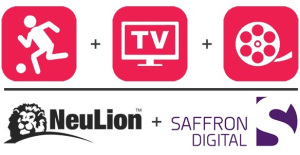 The blockchain is a hot topic in the music business these days, featured on panels at nearly every industry conference and gobbling up acres of paper and pixels in the industry press. But it hasn’t gained nearly as high a profile in the TV and film business.
The blockchain is a hot topic in the music business these days, featured on panels at nearly every industry conference and gobbling up acres of paper and pixels in the industry press. But it hasn’t gained nearly as high a profile in the TV and film business.
That’s in part because, while Hollywood has its problems, the film and TV business isn’t nearly as broken as the music business, and movie and TV people are simply not as hungry for radical fixes as many musicians are today. Unlike the music business, where the consumer’s embrace of streaming is blamed for pushing down profit margins and diluting artists’ earnings, the popularity of video streaming services like Netflix and Amazon Prime has sparked an explosion in scripted TV production and a boom in jobs and pay scales for actors, writers and other behind-the-camera personnel.
Even the major studios, who have watched subscription VOD services erode their once highly profitable DVD business, have benefited from re-selling back catalog to Netflix, Hulu and others.
That doesn’t mean there might not be better ways of doing business, however, or that blockchain won’t play a role in TV’s future. Startup SingularDTV is betting both will happen, in fact, and has set out to prove it.
Read More »
 As the power of the “Big Five” publishers (Hachette, HarperCollins, Macmillan, Penguin Random House, and Simon & Schuster) in the US ebook market wanes, self-publishing authors have overtaken them in terms of unit sales.
As the power of the “Big Five” publishers (Hachette, HarperCollins, Macmillan, Penguin Random House, and Simon & Schuster) in the US ebook market wanes, self-publishing authors have overtaken them in terms of unit sales.

 Paul Harrington, a leading session player on harmonica based in Rockwall, Texas, today announced that after a lengthy quest he has received digital session royalties for the Pitbull track, “Timber,” featuring Ke$ha.
Paul Harrington, a leading session player on harmonica based in Rockwall, Texas, today announced that after a lengthy quest he has received digital session royalties for the Pitbull track, “Timber,” featuring Ke$ha. The blockchain is a hot topic in the music business these days, featured on panels at nearly every industry conference and gobbling up acres of paper and pixels in the industry press. But it hasn’t gained nearly as high a profile in the TV and film business.
The blockchain is a hot topic in the music business these days, featured on panels at nearly every industry conference and gobbling up acres of paper and pixels in the industry press. But it hasn’t gained nearly as high a profile in the TV and film business. NeuLion believes that the combined synergies derived from adding its experience in delivering live TV channels and live sports to the Saffron assets acquisition can transform the over-the-top (OTT) challenges faced by owners and rights holders of sports, entertainment, films and TV channels.
NeuLion believes that the combined synergies derived from adding its experience in delivering live TV channels and live sports to the Saffron assets acquisition can transform the over-the-top (OTT) challenges faced by owners and rights holders of sports, entertainment, films and TV channels.



